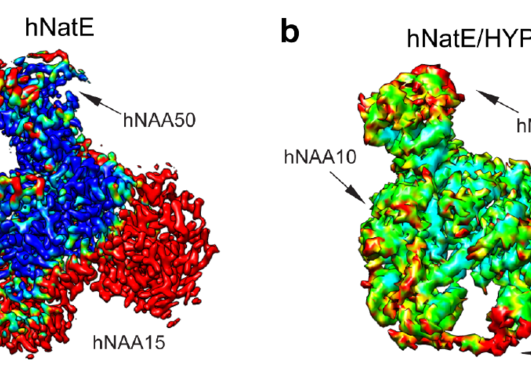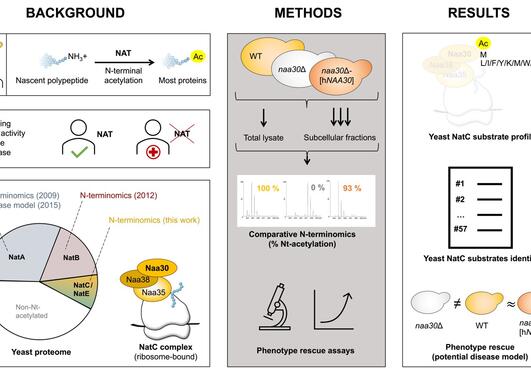Removing protein N-terminal acetylation increases the turnover of ribosomal proteins
The impact of the most common protein modification, N-terminal acetylation, has remained a conundrum in the field since its very origin. A new UiB article adds a piece to this puzzle.

Hovedinnhold
Together with proteomics collaborators at the University of Copenhagen, the Arnesen lab at UiB investigated proteome stability in presence and absence of N-terminal acetylation. We used yeast cells devoid of the major N-terminal acetyltransferase NatA to be able to study cells lacking half of their total Nt-acetylation events. NatA is linked to congenital disease and cancer and our findings may be relevant for the understanding of disease mechanisms and treatment. Budding yeast (Saccharomyces cerevisiae) is a simple eukaryotic model organism and its usefulness is yet again demonstrated. This study would not have been possible in human cells since the genes encoding NatA subunits are essential for the survival of human cells. Since the biochemical function of NatA (and many other proteins) is conserved from yeast to humans, we may learn a lot from exploring this organism.
After using isotope labelling on these yeast strains, we harvested a series of samples at regular time-intervals. Henriette Aksnes, Nina Glomnes and many more Arnesen lab members spent late evenings in the lab to cultivate yeast and process all the required samples. This allowed a global monitoring of protein lifetime and we found that NatA-deficient yeast had an elevated turnover rate of certain proteins - specifically those taking part in ribosomes, i.e. the protein-producing machinery. These findings agree with a role for Nt-acetylation in promoting stability for parts of the proteome by enhancing the avidity of protein-protein interactions and folding.
Interestingly, mutations in NatA genes were recently found to cause congenital heart disease. Here, a specific defect in ribosomal proteins was noted. The new findings from our yeast model may thus shed light on the disease mechanisms in these patients involving aberrant turnover of ribosomal proteins and altered ribosome stability.
This study was supported by the European Research Council, EPIC-XS, the Norwegian Cancer Society and Helse Vest. Rasmus Ree was supported by the Medical Faculty UiB to visit the Jesper Olsen lab at the University of Copenhagen.



